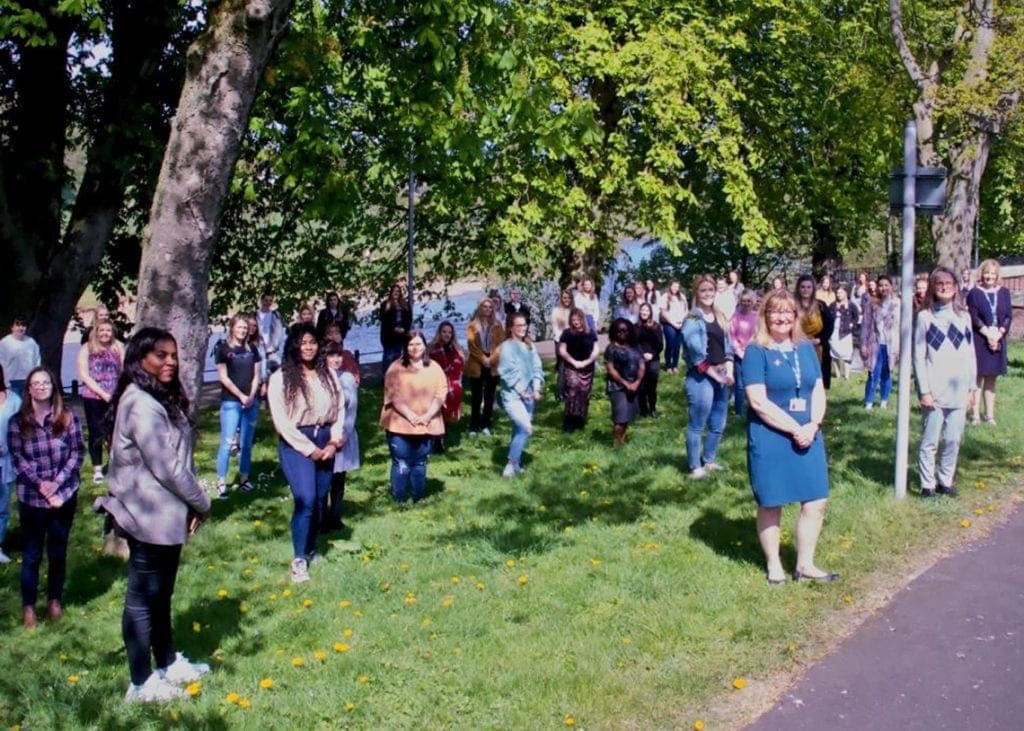More than 50 third year nursing students have joined North Cumbria Integrated Care (NCIC) NHS Foundation Trust this week as part of a national response to COVID-19.

Nursing students across the country in their last six months of training have been given the option to undertake a clinical placement for the duration of the coronavirus emergency so that they can continue their programme while contributing to clinical services.
Pictured are some of the 53 student nurses from University of Cumbria, Liverpool John Moores University, and Edge Hill University at Ormskirk, Lancashire are taking part in a three-day induction programme to prepare them for placements in hospitals in the area, in adult, paediatric and midwifery services.
As part of this, the Nursing and Midwifery Council has also agreed to suspend the usual supernumerary status for students, who have instead been offered the opportunity to commence temporary formal contracts and take up paid NHS healthcare positions within trusts.
Gill Long, Head of Nursing, Clinical Education and Practice Development at NCIC, said: “We recognise that these are unprecedented times, and hope that by staying connected to the students and ensuring they are able to raise any concerns and anxieties they have, we can develop learning that meets their needs and enables them to provide the best possible hospital experience for our patients.
“We want to ensure that the students are given a positive experience during the placement, and hope that by doing this they will consider staying with us when they complete their placements and register as nurses in September.”
Dr John Howarth is the Strategic COVID-19 Lead for NCIC added: “This is the first time that we’ve faced something like this in the country, and we’re all having to adapt and think differently, both in our work lives and social lives.
“At the trust, we’re doing everything we can to protect our staff, and this includes giving all staff PPE to wear, even in non-COVID areas, and we use social distancing as much as possible throughout all of our sites.”
“There was fantastic preparation by the Trust in response to the pandemic, and it has enabled us to cope well and stay within our capacity. It has made me proud to work for the NHS.”
It is hoped that the student nurses will choose to stay at the trust when they complete their training in September.
Second year nursing students will also be invited to spend 80 per cent of their time in clinical practice and the remainder in academic study during the Covid-19 emergency period. This time will be remunerated and also recognises the significant contribution that students can make to the healthcare workforce at a time of national crisis.
A similar approach is also being taken with students currently studying in allied health care professions who go on to qualify as paramedics, radiographers, physiotherapists and occupational therapists. They are being drafted into placement on an emergency rota basis, although this is still voluntary and these students can opt-out if they choose.
It is estimated that this approach could increase the NHS workforce in Cumbria and North Lancashire by an additional 352 student nurses.








